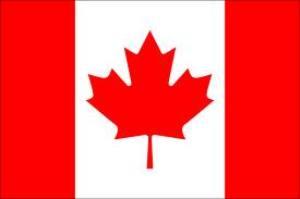Drug War Issues
Politics & Advocacy
British Columbia election officials announced last Thursday that they had approved in principle an initiative petition that would decriminalize the possession and use of marijuana by adults. The initiative is the brainchild of longtime marijuana reform advocate Dana Larsen, who ran unsuccessfully for the leadership of the British Columbia New Democratic Party.

Elections BC said it will issue the petition November 19. The campaign would then have 90 days to collect the signatures of at least 10% of registered voters in the province's 85 electoral districts -- if it wants to move forward this year, but it doesn't.
Larsen told the Vancouver Sun he will not be gathering signatures this fall, but will instead use the petition to gain attention for the cause and train and mobilize "an army of well-trained, disciplined signature gatherers." He said he would resubmit the initiative petition in September 2013 and start signature-gathering then.
"It is a very difficult procedure, absolutely," he told the Sun. "It's a big challenge. That's why we're doing it in this unique way of spending a year in advance to build support and build up our volunteer base. I am very confident that far more than 10% of the registered voters in every riding of the province support decriminalization of cannabis."
If recent polling is any indication, Larsen is correct. A July Ipsos Reid poll had a whopping 69% of British Columbia respondents saying they supported decriminalization.
Although marijuana use levels in the province have been relatively unchanged, possession charges have doubled in the past few years, from 1,700 in 2005 to 3,505 in 2010, Simon Fraser University criminologist Neil Boyd told the Sun. Boyd added that police had actually reported some 15,000 pot possession incidents, but laid charges in only a fraction of them.
"I do think it makes sense not to enforce marijuana possession laws," he said.
The initiative process in British Columbia is lengthy. First, the initiative must gather some 400,000 signatures, then election officials will have to verify its validity before sending it to a legislative committee. The committee must then meet within 30 days and has 90 days from then to consider the initiative. It can then either recommend that the bill be considered by the provincial legislature or send it to the voters.
Initiative votes occur only once every three years. The next one is set for September 2014, so it could be two years from now before voters get a chance at changing the law, but could be sooner than that if the legislature just votes to approve it.
This work by StoptheDrugWar.org is licensed under Creative Commons Attribution-ShareAlike 4.0 International
Comments
What is the point of this?
Sorry even if this passed it is still up to the Federal government to change drug laws, provinces can not do it. With Harper as our Dictator err Prime Minister their will be no changes except for stiffer penalties.
Since Harper got in in 2006 Canada has regressed slowly back into the dark ages..Hell i thought 35 years ago marijuana would of been legal in Canada by now or at least decriminalized.
In reply to What is the point of this? by CanadianMalcontent (not verified)
You can bet your bottom
You can bet your bottom dollar the U.S. govt has been involved with discussion with the Prime Minister-the 'ol "tit for tat" just as in Nixon's day. When the U.S. has their own 'legalization', watch the dominos fall all within a year... after all, there will be no 'trade agreements' balanced on cooperation with the U. S. Drug Policy when it comes to Mj.
Add new comment